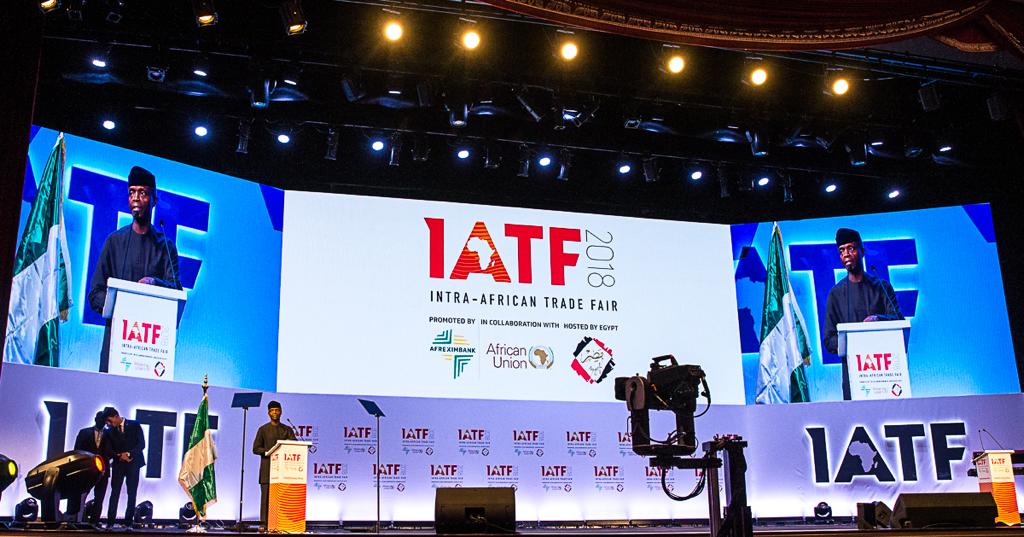Muftau Muyiwa* writes on the changing narrative of Africa. Once depicted as a “hopeless” place incapable of installing and sustaining democratic rule or effective governance, it’s now being trumped as a continent of opportunities. The author explains that Africa has always been a haven of business and economic opportunities and what the world must do engage the continent’s reality to mutual benefits.
- Narratives about Africa is changing from one of “parasite” and “instability” to the cradle of huge business and investment opportunities.
- Current forecast projects that Africa will be home to 2.2 billion inhabitants by 2050
- African countries have ratified a concrete commitment to erect the world’s largest free trade zone by 2030.
- Agriculture, power, telecommunication, production, transportation, automotive, logistic, financial and mobile payment solutions are viable sectors for potential investment.
Events in the post-colonial era have stimulated a strong sense of pessimism towards the African continent, which is perceived as unable to develop, incapable of installing and sustaining democratic rule or effective governance. These sentiments were conditioned by media depictions of Africa as a poverty factory, home of tragic political drama and socio-economic decay. Today, Africa continues to wrestle with the ghosts of its turbulent history and stubborn reputation. Thus, the African continent has earned negative narratives such as “dark continent”, “hopeless Africa” and rather optimistic narratives, such as a “rising Africa”, “Africa rising” and “aspiring Africa”.
The African Business Environment
The business environment across African countries is often misconstrued as an investment red light. The fingerprints of this misconception are evident in the shallow business analysis and negative business forecasts regarding the business environment in different parts of Africa.
These factors have conspired to stifle the wave of investment into the African continent. Business analysts are quick to cast aspersion on Africa’s business environment by referring to the political and economic instability that has been witnessed in some countries. This is falsely exaggerated!

Of course, socio-economic, cultural and political variables can enhance or obstruct investment opportunities. After all, a brief excursion into the African history will expose a fact: African political landscape has been riddled with political instability, dictatorship and military interventions. Democracy in many African countries is still at its infancy, while some countries are plagued by violence or exhibit symptoms of fragility.
Notwithstanding, it is myopic, if not mischievous to assume that the entire continent is a breeding ground for political instability, investment loss and business volatility. For investors, it would be a fallacy of irrelevant conclusion to state that Africa countries are not a fertile ground for profitable investment. This does not reflect reality!
Investors must embrace the reality that Africa is divided across distinct geographic boundaries, ethnic and linguistic lines. This must be navigated with caution, as no investor possesses a monopolistic understanding of the business environment in African countries.
Thus, investment decisions demand a corresponding degree of strategic planning and analysis. Investors must refrain from making hasty business analysis and decisions without adequate research about the African country of business interest. Investors must also avoid the temptation to assess the African business environment with western-based parameters. Instead, Africa should be approached as a differentiated and fragmented whole, each with its peculiarities and complexities.
Investment, not financial aid, is what the continent needs for infrastructural growth and economic prosperity. China’s growing presence in Africa is a testament to the continent’s receptivity to foreign investment, economic ties, trade relations and business collaboration.
Current estimate suggests that 70 percent of Africa’s population is under the age of 30, while current forecast projects that Africa will be home to 2.2 billion inhabitants by 2050. By then, the African population will constitute half of the world’s population. The icing on the cake is that: 1 billion from this 2.2 billion will be under the age of 18, within the threshold of an “active population” and providing the essential human capital.
Exploring Investment Opportunities in Africa
Custom bottlenecks have been the greatest obstacle to the free flow of trade. The continent has recognized this problem: free trade zones are scattered across African countries. For instance, Djibouti initiated the Djibouti International Free Trade Zones offering zero corporate tax, income and value-added taxes. This was realized with a total investment of $3.5 billion and 21 inaugural firms. Similarly, the Lekki free trade zone in Nigeria has an impressive capacity, strategic location and is linked to regional, European or international routes. This will provide huge investment opportunities for the consumer market.

In an era of globalization, the bridge between Africa and the rest of the world is fast dissolving. African countries have witnessed phenomenal annual growth rate: Ghana at 8 per cent, Rwanda at 8 per cent, Ethiopia at 11 per cent, Côte d’Ivoire at 7.2 per cent and Nigeria at 3.8 per cent. African countries have installed measures calculated at accelerating growth and meeting the realities of international trade.
African countries have also converged to create the United States of Africa and have ratified concrete commitment to erect the world’s largest free trade zone by 2030. The African Continental Free Trade Area (AfCFTA) will become synonymous with economic integration, open markets, zero tariffs on trade and the possibility of a single currency – a prototype of the European Union.
These developments and the implementation of macroeconomic policies will ultimately serve as a catalyst to transform Africa into a juicy investment destination, a global economic powerhouse and the pivot of international trade. This will culminate in an unprecedented surge in logistics and trigger viable business opportunities.
Africa is abundantly rich in natural resources, hydroelectric power, unexploited reserves of natural gas, diamond, platinum, large deposits of uranium, iron ore, gold and copper. Again, Africa is home to about 60% of uncultivated arable land in the world, while a meagre 10% of is land is being cultivated. This implies that the agricultural sector contains enormous potential that has not been fully harnessed.
Again, Africans have embraced digital transformation in all its forms. The high internet penetration and use of smartphones present investment opportunities for e-commerce, mobile, financial and payment solutions.
Finally, it is worth mentioning that the Stock market is quite vibrant. Sub-Saharan Africa has an estimated 29 stock exchanges spanning 38 countries, with varying sizes and trading volumes. As business leaders and entrepreneurs seek to explore new markets, the African business environment can satisfy their insatiable appetite for risk and profitable investment. These realities should serve as music to the ears of investors.
It is official: African countries are ready! Investors, are you ready?
———————
*The author, Mufutau Kolawole Muyiwa, is a fast track PhD candidate of the program ‘Global Communications: Politics and Society’ at the University of Erfurt, Germany. He holds a master’s degree in Media and Communication Science, University of Technology (Ilmenau, Germany). He is currently a Content Specialist at UBE Corporation Europe in Dusseldorf
 THE AFRICAN COURIER. Reporting Africa and its Diaspora! The African Courier is an international magazine published in Germany to report on Africa and the Diaspora African experience. The first issue of the bimonthly magazine appeared on the newsstands on 15 February 1998. The African Courier is a communication forum for European-African political, economic and cultural exchanges, and a voice for Africa in Europe.
THE AFRICAN COURIER. Reporting Africa and its Diaspora! The African Courier is an international magazine published in Germany to report on Africa and the Diaspora African experience. The first issue of the bimonthly magazine appeared on the newsstands on 15 February 1998. The African Courier is a communication forum for European-African political, economic and cultural exchanges, and a voice for Africa in Europe.


























